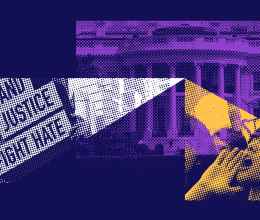
Today, amidst a drug overdose crisis, the New Jersey Opioid Recovery and Remediation Fund Advisory Council held a virtual listening session to gather input from the public on how to invest nearly $1 billion in opioid settlement funds over the next two decades. Public health and policy experts in overdose prevention from across the state submitted testimony supporting policies that invest in harm reduction programs that save lives and remove the excessive barriers to treatment in our communities.
“New Jersey has a once-in-a-generation opportunity to build the public health infrastructure, using opioid settlement funds, that we’ll need to end the overdose crisis and finally treat drug use as an issue of public and personal health,” said Elizabeth Ruebman, Managing Director at the Community Based Public Safety Collective. “Going forward, The New Jersey Opioid Recovery and Remediation Fund Advisory Council must prioritize investing opioid settlement funds for harm reduction programs that work to save lives and remove the excessive barriers to treatment in our communities.”
The ACLU of New Jersey, NCAAR-BH, Newark Community Street Team, New Jersey Harm Reduction Coalition, and Dr. Sandy Gibson of the New Jersey Addiction Professional Association submitted shared written testimony with recommendations to use generational funds to invest in a public health approach to drug use.
“New Jersey has a tremendous opportunity to build on the success of New Jersey’s recent harm reduction expansion law by investing in a full spectrum of harm reduction services, 24/7 access to evidence-based treatment, community-led overdose response, and Housing First resources in every community,” said Caitlin O’Neill, Co-Director at New Jersey Harm Reduction Coalition. “Investing in anything less is not overdose prevention. We have seen what funding only abstinence-based and punitive responses does, and we cannot afford to lose more loved ones to preventable overdose deaths.”
“Despite devastating overdose numbers in our communities, lawmakers are keen to continue a punitive approach to address drug use– proven ineffective since Richard Nixon declared war on people who use drugs 52 years ago,” said Summer Brancoccio, President and CEO of NCAAR National Center for Advocacy and Recovery, Inc. “We will not arrest our way out of the overdose crisis. This is a public health issue, not a criminal one, and we must treat it as such. It is time that we stop wasting valuable resources that can go to helping the most vulnerable in our communities.”
"For decades, New Jersey has spent billions of dollars to criminalize people – disproportionately Black and Latinx people – for drug use instead of investing in evidence-based public health responses that keep communities healthy and safe,” said Ami Kachalia, Campaign Strategist at ACLU-NJ. “With these new funds, it is essential that the state commits to investing in systems of care and compassion instead of more of the same punitive policies that lead to overdose deaths and mass criminalization. We need investment in harm reduction, access to housing and other supports rather than enforcement."
To build the public health infrastructure needed to end the overdose crisis, public health and policy experts recommend that New Jersey prioritize funding for:
- Full suite harm reduction services that include tools for safer use to prevent infections like HIV, Hepatitis C, and endocarditis (e.g., sterile pipes and syringes), risk reduction counseling, and connections to medication for opioid use disorder in every community;
- 247/7 “on-demand” treatment accessible in every community and available at no cost, and only fund drug treatment services that follow best practices for care;
- Pilots of evidence-based programs that save lives in other states and countries (for example, Heroin-Assisted Treatment, Stimulant-Assisted Treatment, and Overdose Prevention Centers)
- Housing First shelter options for people who use drugs and experiencing homelessness;
- Fact-based, accurate drug education curriculum for New Jersey’s young people;
- Repairative investments in Black and Hispanic/Latinx communities most harmed by drug war enforcement;
- A thorough and publicly-available audit of existing state-funded programs to identify and reform policies, practices, programmatic funding, and regulations that are not aligned with best practices of nonjudgmental harm reduction-based care that does not require abstinence.
- Modernization of the Governor’s Council on Alcoholism and Drug Abuse to prioritize harm reduction and public health.
Read submitted testimony below.




